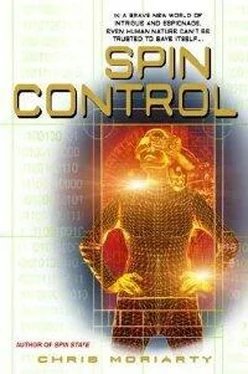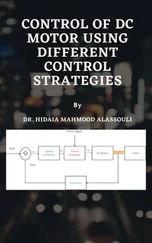“I think so.”
“Good. Is there anything you don’t understand? Any questions you’d like to ask? Anything you’re worried about? Anything I can help you with or explain to you?” Gavi had put the charm on hold, Arkady realized. Now he was all cool, competent, dispassionate professionalism. There was something almost courtly about his change in demeanor; as if he were warning Arkady that it was time to get his guard up and put his game face on.
“Uh…I can’t think of anything at the moment.”
“Okay. No hurry. If you think of anything later, really anything, feel free to stop me and ask. Okay?”
“Okay.”
“First let’s set the ground rules. I know a number of people have been asking you questions lately, some of them not very politely judging from the state of your hide. In fact, you look like you’ve been through hell. So let me tell you right now that you’re not going to get any of that from me. This interrogation—and it is an interrogation; we can leave the we’re-all-just-friends-having-a-chat act for amateur hour—this interrogation is going to be tedious, and probably long, and certainly annoying. But that’s all it’s going to be. I don’t deal in violence. I deal in information. I hope the information you give me will be true, but if it’s not…well, lies are information just like truth. And anyway”—a brief flash of the nonprofessional smile here—“you won’t lie to me, because I’ll catch you out at it sooner or later, and that’ll just be embarrassing for both of us.”
And then, with the jokes and self-deprecating smiles and humorous asides that Arkady would come to see as the very essence of the man, the interrogation began in earnest.
Gavi’s interrogation method, if you could call it that, was simply to take Arkady through his story, again and again, questioning, probing, asking for details, dates, names, endless clarifications. And all the while Gavi listened, crossing his legs and arms, hunching his back and nodding sympathetically, seeming to shrink in upon himself until there was nothing on the other side of the table but those liquid black eyes. It was as if Gavi were effacing himself—becoming the bare idea of a listener—in order to let Arkady’s vision, Arkady’s memories, Arkady’s version of Novalis, take over their shared universe.
And then he would step in—never obtrusive or confrontational, just curious—to ask the question that would pull loose a new thread of memory, open up a new set of questions, recast past words in a new and revealing light, narrow down meanings and implications and insinuations until every word of Arkady’s story possessed the crystalline clarity of a mathematical equation.
If Arkady had still been trying to sell Korchow’s carefully crafted lies, the effects would have been devastating. As it was, however, it seemed like wasted effort.
“I’m not lying to you,” he finally blurted out. “I’m asking for your help. What can I do to make you believe me?”
“I already believe you,” Gavi said, backing up the words with one of his defenseless smiles. “You had me after the first five minutes. But I also happen to think that Moshe was right”—they’d worked their way around, through, and out the other side of Moshe by now—“You know a lot more about Novalis than you think you do. To be honest, I’m hoping that if I can just keep working you through the story, turning the whole thing over, looking at it from fresh angles, you’ll get one of those aha! moments and we’ll be able to pull some of the things you don’t know you know out into the light of day. Make sense?”
“I guess so…”
“But what?”
“I thought of a question I want to ask.”
“Ask away.”
“Are you Absalom?”
Gavi froze for a moment, then leaned back in his chair and gave Arkady a sideways look that was at once amused, challenging, and appreciative.
“No. But I can’t offer you any proof of that. And besides”—Gavi’s lips twitched in a crooked, pained little smile, and again Arkady felt the sharp pang of loss that hit him whenever he saw Arkasha in the other man—“I’m a notoriously talented liar, so you can’t trust me anyway.”
“Do you know who Absalom is?”
“No. That’s also true, by the way.”
Arkady smiled in spite of himself. “And also unprovable?”
“Yeah. It’s a real stinker, isn’t it?”
Arkady looked at Gavi across the table for a long moment. Gavi looked back, a faint smile playing around his lips, his eyebrows raised ever so slightly in an unspoken question.
“I like you,” Arkady said.
“I like you too. But I’m still going to do my job. So don’t get to liking me too much. Just in case…”
“Now you sound like Osnat.”
“Do I? Well, don’t tell her. I doubt she’d find the comparison flattering. All right. Back to Novalis. Where were we again?”
NOVALIS
The Time of Cruel Miracles
Circling arises in army ants when many individuals yield in common to routine stimulus-response mechanisms dominating group locomotion. In this respect it resembles emigration; with the difference, however, that the pattern of emigration is adaptive whereas that of millingis likely to be maladaptive… But humans, with a cortical basis for versatile corrective patterns (e.g., learning to counteract propaganda or other coercive measures) and with encouragement, should be able to reduce social behavior of the milling type to an occasional subway rush.
—T. C. SCHNIERLA,
ARMY ANTS: A STUDY IN SOCIAL ORGANIZATION (1971).
From the moment the rest of the survey team began to wrap their brains around the idea of Bella’s pregnancy, something happened that surprised Arkady as much as it frightened him.
It became an assumption, held with a certainty bordering on religious faith, that the ultimate cause of Bella’s pregnancy was not terraforming fallout but a genetic weapon specifically targeted at Syndicate bodies, Syndicate ideology, the Syndicate Way of Life.
Novalis’s prior settlers, until now objects of pity and admiration, were suddenly assumed to be the advance troops of an unseen enemy. And the identity of that enemy was another article of quasi-religious faith, uncontested by any loyal Syndicate construct: the United Nations.
“But why would they assume it’s a genetic weapon?” Arkady asked Arkasha, who also secretly doubted. “I mean it’s not like it’s killing us…the opposite, you might even say.”
“You can’t mean that seriously.”
They were lying on Arkady’s bunk, snatching a rare moment of rest amidst the chaos. “Well, actually,”
Arkady said, “I do mean it.”
“Then I’d say that for once By-the-Book Ahmed is actually showing more brains than you.”
“But what threat to us is it if—”
“Not us, Arkady. We believe in the system. We have too much at stake not to believe. And RostovSyndicate may not be perfect, but at least it would be recognizable to the Zhangs and Parks and Banerjees who started the Breakaway. But Aziz and Motai Syndicates have started down the road of specialized series. B’s. C’s. Motai’s even introduced Ds, though they only use them for UN-based contract work. So far. The Motais and Aziz A’s don’t want the kind of world we all grew up believing in. They want a class system without money, a police state without prisons. Do you really think their C’s and D’s are going to go along with that when there’s a chance of getting immortality the old-fashioned way?”
“Maybe it’s a gift in disguise, then. Maybe it’ll make us live up to our ideals and get out of the specialized series business.”
“There’ll be civil war before that happens, Arkady. Or revolution. And a society can’t survive two revolutions in one generation.”
Читать дальше












